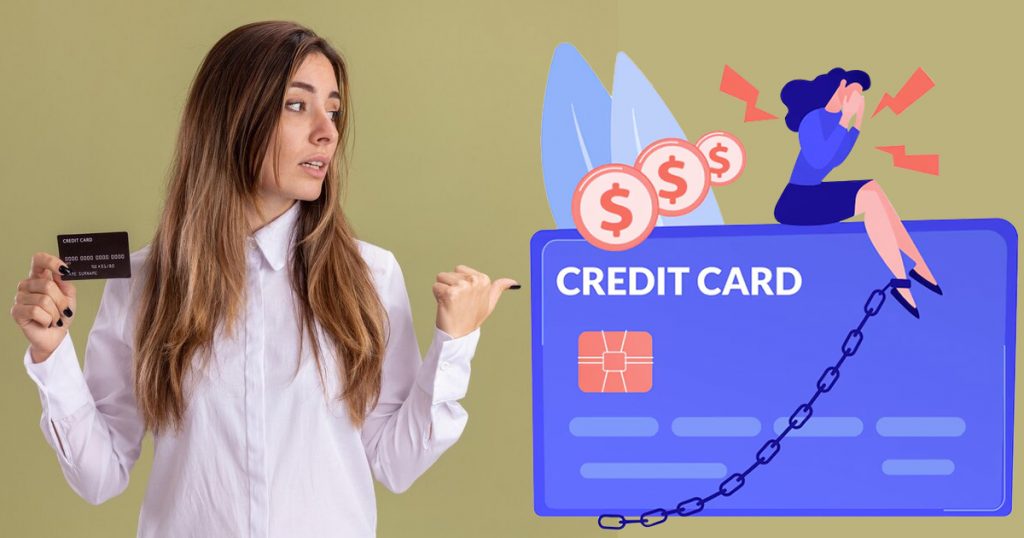Credit cards can be helpful or harmful, depending on how you use them. They make spending convenient, but if you’re not careful, they can lead to serious financial stress. A review from Experian shows that the average credit card debt of U.S. consumers is $6,730, an increase of 3.5% from the third quarter of 2023. This heavy reliance on credit cards has caused rising debt levels as interest charges pile up. Understanding the major risks of credit card usage and how they can impact both individuals and businesses is essential for making informed financial decisions.
The Common Pitfalls of Credit Card Usage and How to Avoid Them
Credit cards can make life easier, but it’s important to understand the risks so you don’t fall into costly traps. Below are the common issues many face and how they can hurt your financial health.
1. The Trap of Overspending and Growing Debt
It’s easy to spend too much and fall into debt.
One of the biggest risks of credit cards is how easily you can overspend. Swiping a card feels far different than handing over cash. This “invisible spending” often leads people to buy things they can’t really afford. For businesses, overusing credit can cause cash flow issues, making it harder to pay bills or cover unexpected costs.
The problem worsens when you carry a balance. With credit card interest rates averaging around 21%, even a small unpaid amount can grow into a big problem. Many people only pay the minimum due, and their debt keeps growing. To avoid this, set a budget and try to pay your credit card bill in full each month.
2. Late Payments and Credit Score Damage
A single late payment can hurt your credit score for years.
Your credit score plays a big role in your financial life. It affects your ability to get loans or lower interest rates. Late credit card payments are one of the top reasons scores drop. According to FICO, payment history makes up about 35% of your credit score. Just one missed payment can stay on your credit report for seven years.
To avoid this, set up payment reminders or automatic payments. Just make sure your bank account has enough money to cover the payment. Checking your monthly credit card statements is also a good habit to catch mistakes or fraud.
3. Interest Charges That Cancel Out Benefits
High-interest rates can wipe out any credit card rewards.
Many credit cards have perks like cashback, travel rewards, or purchase protection. But these benefits often don’t matter if you’re carrying a balance. For example, earning 2% cashback means little if you’re paying 21% interest on unpaid balances. Interest charges can quickly erase any rewards you earn.
To avoid this, only use your card for planned purchases you know you can afford. Emergencies should ideally be covered by savings, so you’re not forced to rely on high-interest credit card debt.
4. Fraud and Unauthorized Use
Stolen card details can lead to major financial problems.
Credit card fraud is a growing issue. According to the Federal Trade Commission, about 34% of identity theft reports are related to credit cards. Criminals can steal your card information through methods like phishing, skimming devices, or data breaches. While most credit cards offer fraud protection, solving these issues can still take time and effort.
To protect yourself, only shop on secure websites and review your account statements often. For businesses, securing payment systems and training employees on fraud prevention can help reduce risks.
6. Over-Reliance on Credit for Businesses
Depending too much on credit can hurt your business.
Businesses often use credit to manage cash flow or cover costs, but relying too heavily on it can be risky. High interest rates, late fees, or reduced credit limits can make things worse, especially during tough financial times. Businesses that struggle to repay credit card debt may find it harder to grow or stay afloat.
A smarter strategy is to balance credit use with other funding sources, like savings or equity. Keeping organized financial records can also help businesses prepare for unexpected expenses.
7. There are Things You Can’t Buy with a Credit Card
Credit cards don’t work in every situation.
Surprisingly, there are restrictions on what you can purchase with a credit card. Some stores have minimum purchase amounts for card use. Additionally, things like paying your mortgage or certain gambling transactions often come with extra fees or limitations.
While these restrictions might seem minor, they’re a reminder to only use credit cards where it makes sense financially—not for everything.
Master Credit Card Use, Master Your Finances
Credit cards aren’t necessarily bad, but mismanaging them can lead to serious problems. If you’ve asked yourself, What is one of the biggest dangers in using a credit card? or What is the risk of overusing credit for a business? the answers are clear. From overspending and growing debt to fraud and interest charges, the risks are very real.
However, by staying disciplined and sticking to smart financial habits, these pitfalls can be avoided. Treat your credit card as a tool—not an excuse to spend freely. When used wisely, credit cards can help build your financial health, earn rewards, and give you convenience. Stay informed, stay in control, and make your credit card work for you—not the other way around.
